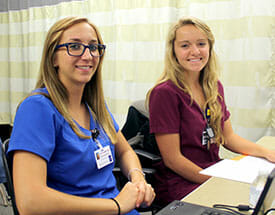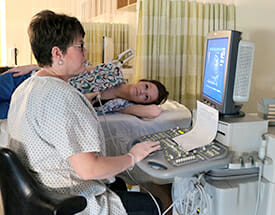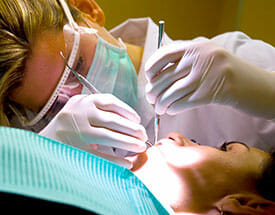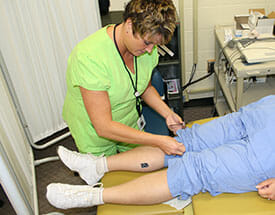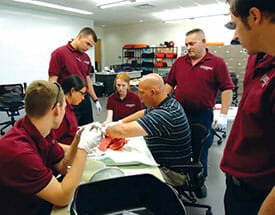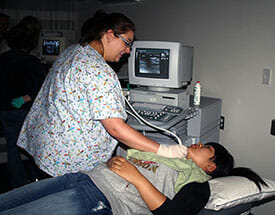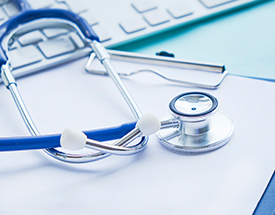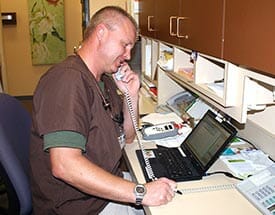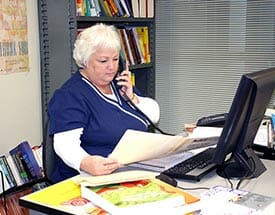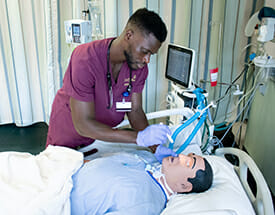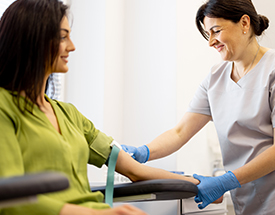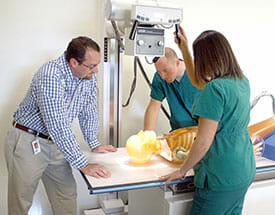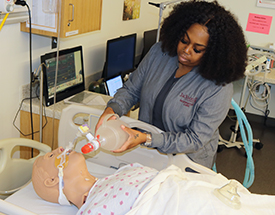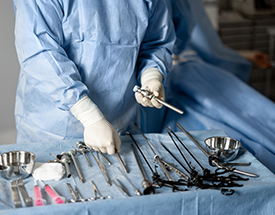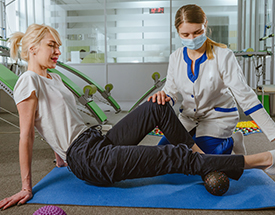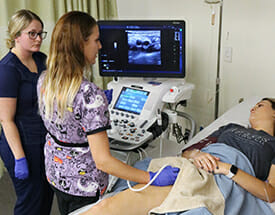Health Sciences Pathway
To meet the ever-expanding demand for qualified health sciences professionals, Jackson College’s Health Sciences Pathway offers a wide array of associate degree and certificate programs as well as concentrations and skill-sets. These programs combine classroom instruction, laboratory experience and clinical practice to assure that students obtain the most current and the highest level skills in their chosen health profession. Students interested in Health Sciences programs may obtain admission requirement information from their student success navigator.
Allied Health
This degree is designed for those who have already earned some form of health care certification or licensure, such as a certified nurse assistant, and are looking to obtain an associate degree in order to further their education or employment opportunities.
Cardiac Sonography
Cardiac sonographers use ultrasound to obtain images of the heart, called an echocardiogram. These images can help a doctor to diagnose any blockages or abnormalities in the heart or in the flow of blood within the arteries around the heart.
Dental Hygiene
Dental hygienists work under the direction or supervision of a licensed dentist, and must be licensed by the state in which they practice. Clinical responsibilities include oral examination; scaling and polishing teeth; exposing, interpreting x-rays; and other activities related to the oral health of the patient.
EKG Technician
EKG technicians, sometimes called cardiographic technicians, specialize in electrocardiography, or EKG testing. EKGs measure and record heart action and rhythm by graphically tracing electrical activity occurring during heartbeats.
Emergency Medical Services
Emergency medical technicians provide medical care to patients in times of crisis and emergency. EMTs and paramedics respond to emergency calls, performing medical services and transporting patients to medical facilities.
General Sonography
A sonographer is the allied health professional who, for diagnostic purposes, uses high frequency sound waves (ultrasound) to create cross sectional images of the patient’s anatomy. Sonographers work in professional harmony with both the radiologist and the clinical physician.
Health Sciences Foundations
This program helps students acquire basic knowledge and skills in math, foundational sciences, healthcare terminology and general education courses. Students who plan to enter health care programs are encouraged to work with a Student Success Navigator to develop a plan.
Medical Assistant
Medical assistants are multi-skilled health care practitioners trained to work in the business and clinical parts of a medical office, clinic or hospital. They assist physicians, podiatrists, chiropractors and optometrists in helping their offices run smoothly.
Medical Insurance Coder/Biller
For every instance that a patient receives care, a health care professional maintains a record of the observations, medical or surgical interventions, and treatment outcomes, with proper medical insurance codes.
Medical Office Support
Medical office support staff work at the front desk of a medical office. They perform a variety of tasks vital to the operation of a medical office including dealing with patients, filing medical documents and handling insurance forms, and handling anything that comes up in a clinical office.
Nursing
Nurses promote health, prevent disease and help people cope with illness. Registered nurses (RN’s) provide care, treatment, counseling and health education to individuals, families and their communities. Most registered nurses work as part of a team with physicians and other healthcare specialists.
Phlebotomy Technician
Phlebotomists draw blood for tests, transfusions, research and blood donations. They provide a vital link in today’s health care field. A person’s blood is key in modern medical diagnosis and treatment and contains information that can be used to diagnose and treat many diseases.
Radiography
Radiography is an allied health career that examines patients using radiation, ultrasound or magnetic fields. Radiographers, also referred to radiologic technologists, produce X-rays and use other imaging techniques such as CT and MRI, essential in diagnosing medical problems.
Respiratory Therapy
Respiratory therapy practitioners, also known as respiratory therapists, assist in the care of patients with breathing or other cardiopulmonary (relating to the heart and lungs) problems. They use high-tech equipment and the latest medical procedures to help patients.
Surgical Technology
Surgical Technology provides graduates the training to work in the operating room of hospitals and surgery centers alongside surgeons, nurses and anesthesiologists while assisting the surgeon. Graduates may work as surgical technologists, sterile processors, sterile processing managers. After gaining clinical experience, graduates may teach or become a certified first assistant.
Therapy
Therapists (including physical, occupational and speech-language) provide clients, infants through elderly adults, with services at the preventive, acute and rehabilitative stages directed toward achieving increased functional independence and decreased functional impairment.
Vascular Sonography
Vascular sonographers utilize ultrasound equipment to evaluate a patient’s veins and arteries for any abnormalities. Ultrasound is a noninvasive imaging technique using high-frequency sound waves to produce pictures of the inside of the body.


